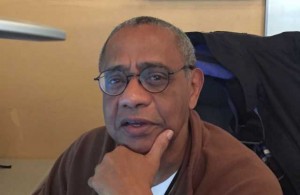
When you are a teenager, you follow the lead of your father and brothers when it comes to sports. So, in 1964, my opinion of a young, mouthy heavyweight with the poetic name Cassius Clay was the house’s opinion: I wanted his big mouth permanently shut by the big fists of Sonny Liston.
Of course, like most of Guyana, we took our news and opinions from American and British shortwave stations; they hated Clay and so did we.
Fortunately, we and the rest of the world didn’t get our wish. Liston did not answer the bell for the 7th round after being completely dominated by Clay.
The news of the death of Muhammad Ali, the name he took after converting to Islam, has drawn nothing but praise and admiration from a broad range of humanity. Never mind that soon after the Liston fight, virtually all of them condemned him for abandoning the faith by becoming a Muslim, and called him a coward and a traitor for refusing to be drafted into the American army to fight in Vietnam.
He was an arrogant, dangerous man (a terrorist in today’s language) for joining the Nation of Islam, an “unsavory” Black sect of an “unsavory” religion. Under threat of being jailed, he was stripped of his boxing titles, banned from fighting and faced public opprobrium everywhere he turned.
Convinced that he was right, he soldiered on with a clear conscience and waited for history to absolve him. It did, as the Vietnam War became enormously unpopular when the army began drafting the children of the white middle class. More importantly, Ali did not waver and used his verbal gifts to support the Black civil rights uprisings and to speak against the Vietnam War.
Ali had a way of speaking volumes in a few sharp words and laid down the following: “I ain’t got no quarrel with them Viet Cong,” to explain why he would not fight in Vietnam. And later, “My conscience won’t let me go shoot my brother or some darker people or some poor, hungry people in the mud for big, powerful America. And shoot them for what? They never called me nigger, they never lynched me, they didn’t put no dogs on me, they didn’t rob me of my nationality, rape and kill my mother and father.
“Shoot them for what? How can I shoot them poor people? Poor little Black people and babies and children and women. How can I shoot them poor people? Just take me to jail … I’ve been in jail for 400 years.”
Through all this, he kept his humour and that twinkle in his eye, which I saw from the beginning, told me that every boast he made had no sinister intent, he was laughing beneath all that braggadocio. I laughed with him.
The praise he received as a man of conscience and steadfastness is totally justified. And that it comes even from those who were his worst enemies says that he was indeed “The Greatest.” But all that aside, I was convinced of him being the greatest for the same reason he said it: he was speaking of the boxer.
In a sport known for its seediness, its association with the underworld and large men with sinister intent, Muhammad Ali brought art and grace to it.
He was a big man who moved with the litheness of Baryshnikov. He moved with ease in any direction, on feet that hardly touched the ground. His hands flicked out with the speed of a frog’s tongue printing lethal sentences on the faces of hapless opponents; first to disorient then to stun. All this while his fast feet made him almost unreachable by his adversaries.
Surely the Gods had prepared him well before they sent him down into the world of mortals; and on his way down he was given the final gift of courage.
It’s that courage that has earned him universal admiration. That courage, which saw him defy the powers of the most powerful nation on the planet and stoically face the ravages of Parkinson’s Disease, came in handy in the ring when his feet no longer kept him safe from being hit.
The Gods have a special place for those who did not waste the gifts they were given. They send them to frolic among the stars.
If you look closely at Ali’s pictures even when a teenager you see his inner star twinklig


